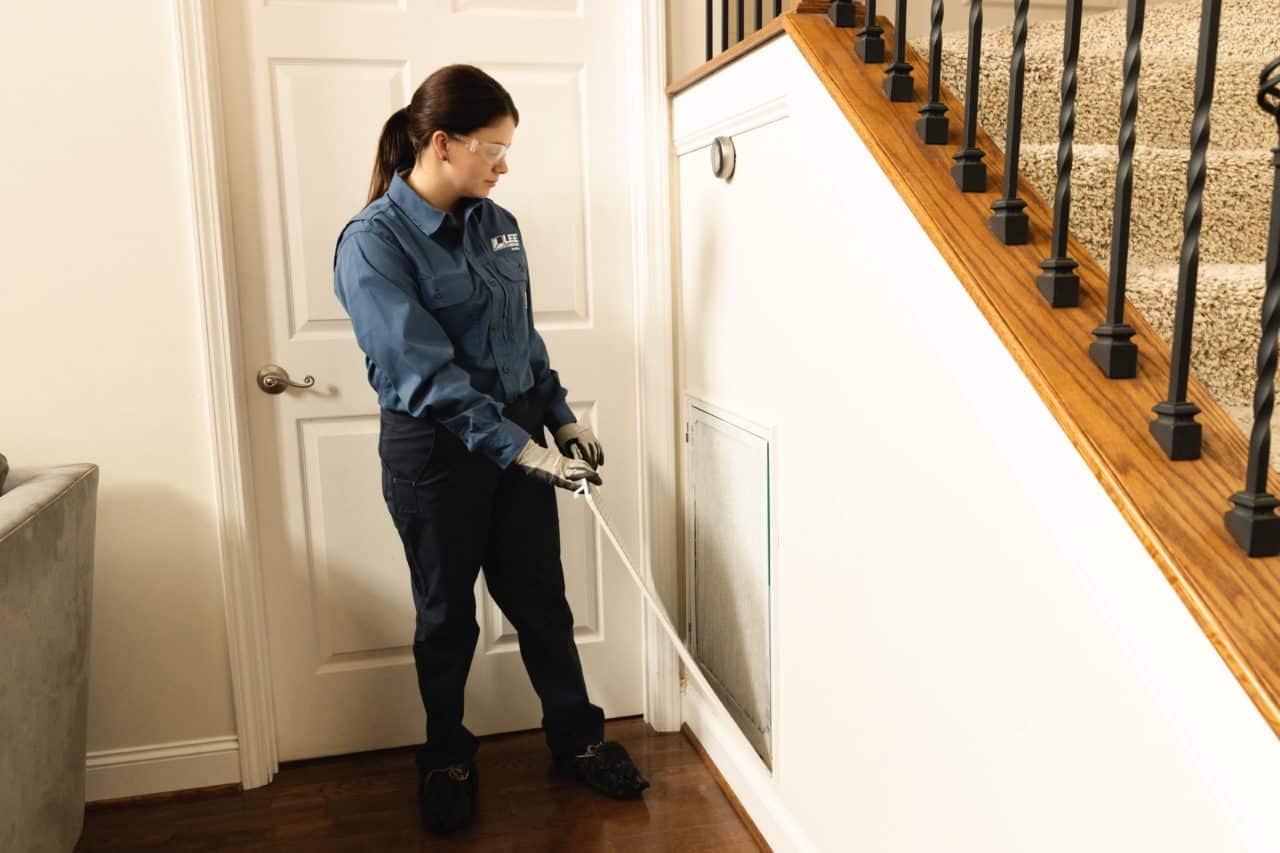With remote work, homeschooling, and the ability to order anything we want online, we’re spending more time at home than ever before! And that means improving your indoor air quality should be top of mind for everyone.
While our homes provide a much-needed respite from the outside world, they can also be full of air pollutants that can adversely affect our health. So what can you do to protect yourself and your family? Read on to naturally combat indoor air pollution, improve your air quality, and breathe easier.
What Is Indoor Air Pollution?
Your home should be a safe haven from harmful outdoor pollutants. Unfortunately, indoor air can be just as bad as (and sometimes even worse!) the air quality outside.
Indoor air pollution is caused by various sources, including off-gassing from synthetic materials used in construction and furnishing, cleaning products, microbial growth, dust mites, and tobacco smoke. It can also result from activities like wood-burning in a fireplace, cooking on a gas stove, and using kerosene heaters.
Outdoor air quality can also play a role in indoor air quality – if your home isn’t properly sealed, outside pollutants can easily make their way inside.
When indoor air quality is poor, it means there are elevated levels of one or more pollutants in the air. These pollutants can cause various health problems ranging from minor discomfort to serious illness.
What Are the Most Common Indoor Pollutants?
When you look around your home, it’s easy to see some of the potential sources of indoor air pollution. But there are many other potential sources that are invisible to the naked eye. Some of the most common indoor pollutants include:
- Cigarette smoke
- Candles
- Pet dander
- Asbestos fibers
- Carbon monoxide
- Lead
- Formaldehyde
- Volatile organic compounds (VOCs)
- Radon
- Pesticides
- Microbial growth and bacteria
- Dust mites
What Are the Dangers of Indoor Air Pollution?
Do you find yourself coughing, sneezing, or feeling low energy when you’re at home? If so, indoor air pollution might be to blame. The Environmental Protection Agency (EPA) ranks indoor air pollution among the top five environmental health risks.
Poor indoor air quality can cause various short- and long-term health problems or aggravate pre-existing conditions (like asthma and allergies).
Short-term effects of indoor air pollution can include:
- Coughing
- Sneezing
- Nausea
- Fatigue
- Dizziness
- Irritated eyes, nose, and throat
- Shortness of breath
- Headaches
Long-term effects of indoor air pollution can include:
- Chronic respiratory problems
- Heart disease
- Cancer
- Neurological problems
- Reproductive difficulties
It’s pretty scary stuff, but there are things you can do to improve indoor air quality and protect your health.
How to Improve Indoor Air Quality Naturally
Now that we have you feeling motivated to improve indoor air quality let’s talk about some of the best ways to do that.
Keep clean
Regular vacuuming, mopping, and dusting can significantly affect indoor air quality. Be sure to clean often-forgotten areas like window sills, ceiling fans, couch cushions, and under beds. When was the last time you had your air ducts cleaned? This should be done once a year. To learn more, read our resource about air duct cleaning.
Improve ventilation
As long as you live in a city with good outdoor air quality, one of the best ways to improve indoor air quality is to increase ventilation. You can do this by opening windows and doors when weather permits, using exhaust fans when cooking or showering, and running a whole-house fan. This will help eliminate any pollutants that have built up indoors and allow fresh, clean air to circulate through your home.
Replace your air filters regularly
Your HVAC system likely has at least one air filter that removes pollutants from the air as it circulates through your heating and cooling system. Over time, they will become clogged with dust and other particles. Check your air filters regularly and replace them as needed.
Use natural cleaning products
The chemicals in many conventional cleaning products use toxic ingredients that can pollute the air you breathe. To reduce your exposure, look for cleaning products that are labeled “green,” “eco-friendly,” or “non-toxic.” You can also make your own natural cleaning solutions using ingredients like vinegar, baking soda, and essential oils.
Avoid smoking
Cigarette smoke is one of the most harmful indoor pollutants. If you smoke, do so outdoors to protect yourself and your family from the dangers of indoor air pollution. Over 4,000 chemicals have been found in cigarette smoke, many of which are known to cause cancer.
Place plants around the house
Plants are natural air purifiers. They help to remove pollutants like formaldehyde, benzene, and carbon monoxide from indoor air. Plus, the greenery is a nice addition to any room.
Invest in an indoor air purifier
Air purifiers are specifically designed to remove pollutants from the air in your home. Look for an air purifier with a high Clean Air Delivery Rate (CADR) rating to ensure that it effectively removes a wide range of common pollutants.
Get an indoor air quality test
If you’re concerned about indoor air quality, you can have your home tested by a qualified HVAC technician. This test will assess the levels of various pollutants in your home and identify any areas of concern.
We can improve the air quality in your home
Great indoor air quality is essential for a healthy home. You can breathe easier and protect your family’s health by taking some simple steps to reduce indoor pollutants.
If you need help improving the air you breathe, contact the experts at Lee Company. Our qualified HVAC technicians can assess your home and recommend the best solutions for improving air quality. We’d love to create the healthiest indoor environment possible for your family!
Want to improve the air quality in your home?
CALL US NOW AT 615.567.1000

